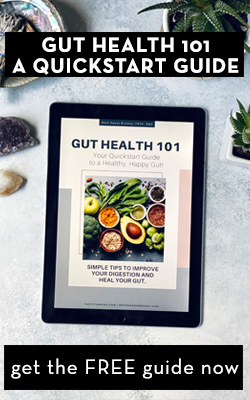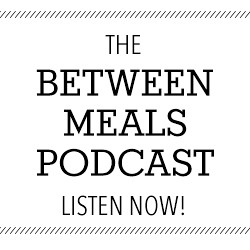
Mindfulness isn’t just yoga and meditation, burning sage and sitting on a meditation cushion chanting ‘OM’. Mindfulness can extend into all aspects of our lives with just a little conscious awareness and minimal effort. Mindfulness is derivative of a “monastic” practice, meaning it was originally made for monks. It utilizes deliberate focus to increase your consciousness and appreciation of the present moment.
One of my favorite methods for incorporating mindfulness with my clients is to do so at mealtime. When we aren’t totally present at meal time, if we aren’t eating mindfully, it can be a disaster for our digestion, for our stress levels, for our moods and many times we can end up accidentally overeating. Often the opposite of eating mindfully is eating mindlessly, and we all know how that goes for us.
The practice of mindful eating is all about learning to pay attention. It can be a form of meditation, almost. Instead of mindlessly shoveling food into your mouth almost unconsciously, not even tasting the food you’re eating, I want to teach you how to slow down and savor your meals. With mindful eating we take the time to pause, to notice thoughts, feelings, and sensations surrounding our meals and to truly taste each bite. I have found this practice be vital to eating intuitively and finding a lifestyle that is appropriate for the individual.
Not only will this make meals more pleasurable and delightful to ALL our senses, but it’s also better for our digestion and it keeps us from overeating.
When our body is in a chronic state of stress, our nervous system will actually shut down our digestion system, as a protection mechanism. This is why one of my all time favorite tips for folks deal with digestive issues to take a look at the stress in their life and even more specifically the stress around meal times.
As well, when we are stressed or not paying attention it’s hard to truly understand and realize the need to stop when we are satisfied, we cannot do any of this if we are on autopilot, shoveling food into our faces.
As far as I am concerned, if you’re not truly tasting and enjoying your food – that’s a problem. How can you ever expect to be able to listen to your body’s subtle cues, to tap into your intuition and
Mindful eating is not a quick fix, but very often it is a very valuable solution, of course it’s also FREE and like most important things in life, it takes practice.
Before we get into the mindful eating tips, I wanted to very quickly explain some of the important things you NEED to know about digestion and why mindful eating can help.

How Digestion Works – The Basics
Digestion is a north to south process and it actually begins in the brain. The moment our brain believes we are about to eat, sometimes simply by just the sight or the smell of food as we think of those first bites, our brain sends signals to the rest of the digestive system to prepare for food.
Mouth – the next step of digestion occurs in the mouth. Our brain sends a signal to the mouth to begin salivating. The saliva contains salivary amylase, an enzyme that works alongside chewing to begin breaking down our food. Read more about how digestion occurs in the brain and the mouth.
Stomach – after the food is chewed and broken down in the mouth, it then travels to the stomach to continue the digestive process. In the stomach, hydrochloric acid is released, triggered by the signals from the brain and the release of the enzymes in the mouth. HCl, aka stomach acid is CRUCIAL to breaking down our food. Without proper stomach acid, food can remain undigested in the stomach for longer than it should. It can cause gas, bloating, cramping and heart burn.
From here our food continues to move through the digestive tract being bathed in digestive enzymes released from the pancreas, bile from the gallbladder and from here it moves into the small intestine and with peristalsis, a distinctive pattern of smooth muscle contractions that propels foodstuffs through, here the appropriate nutrients will be assimilated and then onto the large intestine and finally the remains are excreted as waste. It’s not that I am rushing through these final steps, but when we look at our digestion, often it is as simple as our stress levels and it’s affects on our brain and our mouth, and with this work we can begin healing and managing the dysfunction.
Here is what you may not realize: proper digestion CAN NOT occur if we are stressed out. It is just that simple. Whether that stress is affecting us chronically and away from meal time (work, relationships, finances, etc) or simple every day stressors that occur right as we are actually eating or meals (screaming kids at mealtime, work emails on your phone while you eat, the unnerving evening news playing in the background, eating on the go, etc).
Sympathetic Nervous System
When we are in a state of stress, no matter the cause, our body is in sympathetic nervous system dominance. The sympathetic nervous system is one division of the automatic nervous system. The autonomic nervous system is responsible for regulating the body’s unconscious actions. Sympathetic nervous system dominance is what we call the “Fight or Flight Mode.” In fight or flight mode survival becomes the priority and all non-essential processes are shut down until further notice, this includes the digestive system, immune system and endocrine system. So yes, this actually means that when we are stressed we are not digesting our food. Plain and simple. Salivation may not occur, gastric juices are not produced and released and gastric contractions are halted.
Parasympathetic Nervous System
Opposing the sympathetic nervous system is the other division of the autonomic nervous system is the parasympathetic nervous system, what we call “Rest and Digest Mode”. This division is where the magic happens. When our parasympathetic nervous system is switched on, digestion can function optimally. Stomach acid, digestive enzymes, bile, peristalsis of the intestines (the wavelike movement motility that happens in the small intestines to move food through), contraction of gastrointestinal sphincters and blood vessels – these all happen when the parasympathetic nervous system is activated and they are absolutely non-negotiable for a healthy, happy and working digestive system. In sympathetic nervous system stimulation, these activities are all inhibited.
WHAT YOU NEED TO REMEMBER: The parasympathetic division typically stimulates digestion while the sympathetic division typically inhibits it. Whenever you are stressed, the sympathetic division is dominant.

Why Mindful Eating Works
Eating mindfully allows us slow down. These simple tips can help to trigger the switch over to parasympathetic nervous system dominance so digestion becomes a priority. I also believe that the state of consciousness and the awareness at every meal is as important as the food itself. As you will often hear me say “our body hears what our mind says” so having a positive experience with every meal you eat, avoiding unnecessary feelings fear, guilt or sin, this changes the emotions at the meal and it will absolutely change how your body receives nourishment from those foods. If you are stressed or experiences feelings of shame at your meals, eating in this state will only compound the effects. Savor, enjoy, love and celebrate every delicious bite of food that you eat!
Before Your Meal:
Before you sit down to eat, take a moment to check in with your body. How hungry are you? What is your body asking for? Do you need some greens or something colorful? Are you looking for more protein? Does your body want something warm? Something easy to digest? Are you craving good fats?
Five Tips Mindful Eating:
- Calm Down – Don’t eat on the go, avoid eating while watching TV or while you are stressed or have a million things going on. Avoid distractions. when we are distracted we cannot fully pay attention to our body’s signaling. Find a comfortable spot to eat. For the love of everything, PLEASE SIT DOWN. Take a few deep, purposeful breaths. Keep your phone away from your meals. Turn off the TV. This allows your body to fully get into a relaxed state, which is a MUST for proper digestion.
- Look at your Plate. Notice the food, appreciate it’s beauty, the colors, acknowledge where it came from and the energy that went into bringing it to your plate. Appreciate every nuanced flavor and taste, with every bite. You should want to truly taste and enjoy your food. Try using all of your senses to experience the foods you eat. Notice the smells, textures, colors, and flavors every time you place food in your mouth. I think you will be pleasantly surprised just how nourished you’ll feel and the satiety that you’ll experience when you actually become more present with your meals.
- Chew Your Food – Shoot for 30 to 40 chews per bite, or chew until you can’t really chew anymore. With the process of chewing, your mouth releases salivary amylase and this is actually the beginning of our digestion process. Chewing our food is the first and most important step. The more chewing you can do, the less of a load you are putting onto your stomach and the rest of your digestive tract.
- Set Your Fork Down. By setting your fork down in between bites, not only are you giving yourself the opportunity to slow down and savor the food, but you also also creating moments to check in with yourself. Am I enjoying this meal? Do I *actually* still want more? Have I had enough? Do I feel satisfied? I’m guessing that at the end of the meal you’d want to feel satiated, but not stuffed or sluggish. As you set the fork down, notice if you are continuing to eat simply because the food is there or if you are in fact still hungry. When you feel pleasantly full, it’s OK to be done. Save the leftovers. If you are out, take a to-go doggy bag and bring the food home with you.
- Pay Attention Post Meal. It’s super important to understand how food affects your moods – do certain foods make you feel cranky, low energy or sleepy, anxious or depressed? Do you get gut rot or are you holding in those post-meal toots? Or maybe you feel energized and clear headed? We cannot be disconnected from this part of the eating process, it has so much to share with us. I recommend keeping a food journal, whenever you are working to track your responses and how certain foods make you feel.
Download my FREE Food and Mood Journal that you can print out and use to journal for yourself.










